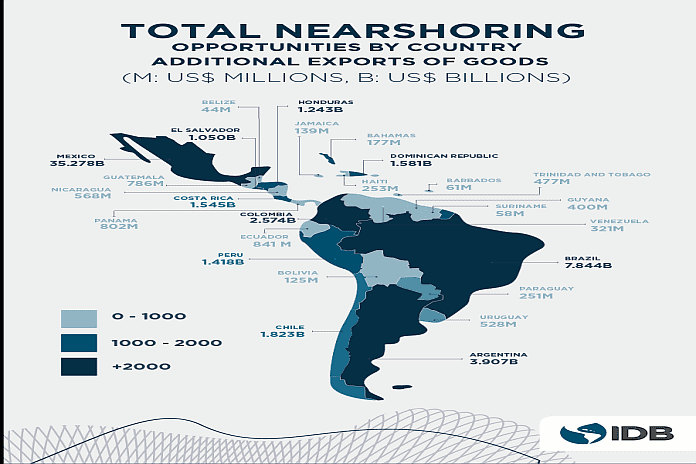
Por Jose Pulido
August 30, 2023
The recent announcement of Google Cloud’s arrival in El Salvador has generated renewed interest in the technological and economic landscape of the Central American country. At first glance, it might seem like an isolated event. Still, in the context of a dollarized country and amidst the rise of Bitcoin as a legal currency, this technological development takes on unprecedented relevance.
More than two decades ago, El Salvador adopted the US dollar as its official currency in an attempt to stabilize the economy, attract investment, and facilitate international transactions. Although the debate over whether dollarization has benefited the country remains polarized, one thing is sure: the measure removed specific monetary policy tools from the government’s arsenal.
Proud to bring cloud technology to El Salvador in some of the most meaningful ways, focused on improving healthcare and education for the country. https://t.co/slbK3huZzJ
— Google (@Google) August 29, 2023
In the article “El Salvador celebrates 20 years of dollarization” by Irma Cantizzano, published by El Economista in 2021, the journalist notes that El Salvador gave up the ability to handle its own monetary policy in times of crisis. To achieve this, the country reduced the bank reserve requirement from 20% before the pandemic to about 8%, resulting in USD $1.6 billion (6.7% of GDP) flowing into the financial system.
Of course, the article argues that dollarization is not a panacea for any country. In the specific case of El Salvador, it has resulted in a complex gamble where the economic gap remains a palpable fact in Salvadoran society.
https://twitter.com/JaimeGuevaraSV/status/1664277567623536645
In this scenario, could the arrival of Google Cloud represent an opportunity for El Salvador to position itself as a key player in the global digital market? It seems that Salvadoran companies can access top-tier infrastructure to innovate and scale their operations. And since the country already operates in dollars, entry barriers regarding currency fluctuation would be minimized.
Google plans to establish operations in El Salvador 😉🇸🇻
Official press release from @Google:https://t.co/Fm1i3YizNr
— Nayib Bukele (@nayibbukele) August 29, 2023
At the same time, the recent adoption of Bitcoin as a legal currency in El Salvador has not been without criticism and scrutiny. Google Cloud’s infrastructure could offer the technological robustness needed to handle the complexity of a financial system based on blockchain. Furthermore, Google’s servers could facilitate the mass adoption and use of Bitcoin by improving the efficiency and security of transactions. But why Google, and why now?
The Mountain View company is joining nearshoring trends while expanding to alleviate the United States’ investment crisis. In this sense, Latin America has become the focus of investors of all sizes, from big tech giants to venture capital firms. Thus, Google has shown a growing interest in Latin America, and its entry into El Salvador could respond to several factors. First, the relative stability of the economy, partly driven by dollarization, may offer a less risky environment compared to other markets in the region. Second, the burgeoning Salvadoran tech ecosystem, in which Bitcoin is now a component, could be attracting the attention of tech giants like Google.

Total nearshoring opportunities in LatAm 2022. (Source: IDB)
While the arrival of Google Cloud presents an optimistic scenario, challenges also exist. One of them is the persistent weakness in attracting foreign direct investment. Although El Salvador has gained certain advantages through dollarization and the adoption of Bitcoin, its performance in terms of attracting foreign investment remains low compared to other countries in the region.
However, Google Cloud could act as a catalyst. It could improve the perception of El Salvador as an attractive investment destination, particularly in the technological arena. Additionally, Google’s infrastructure support could contribute to financial stability, allowing the country to focus on improving other aspects of the investment climate. And what role could artificial intelligence play in this chessboard?
While the arrival of Google Cloud in El Salvador is already a significant milestone, we cannot overlook that Google’s Cloud is not simply a storage service; it is a comprehensive platform that offers various services in the field of AI and machine learning.
With access to Google’s AI tools, Salvadoran companies and startups will have the opportunity to accelerate their innovation at an unprecedented rate. From data analysis to process automation, AI could virtually transform all sectors, from healthcare and education to the financial industry.
Also, AI can offer analysis and prediction methods that make Bitcoin transactions more efficient and secure. Furthermore, machine learning could be used to model economic scenarios that consider the impact of Bitcoin and dollarization on the economy, providing the government with more accurate tools for decision-making.
While the opportunities are huge, so are the challenges. AI is a powerful tool, but its widespread adoption raises ethical and regulatory concerns. In addition, as in any other nation, the skills gap in El Salvador could limit the adoption and effectiveness of these advanced technologies. Therefore, training and education in AI become critical aspects to maximize its positive impact.
In a country already transformed by dollarization and, more recently, by the adoption of Bitcoin, the arrival of Google Cloud and its AI capabilities represents a convergence of factors that could catapult El Salvador into a new era of modernity and progress. If handled with prudence and vision, these elements could become the pillars of a more substantial, diversified, resilient Salvadoran economy.
At the end of the day, the arrival of Google Cloud and the growing influence of AI are not just technological events but also impending economic and social transformations. At the intersection of dollarization, Bitcoin, and artificial intelligence, El Salvador has an unprecedented opportunity to redefine its future and position itself globally as a leader in innovation and digital transformation.
But we are still left with one question: If the benefits of technological investment are not distributed equitably, could this exacerbate social and economic inequalities within the country? In addition, the centralization of data on foreign platforms could pose security and privacy risks and potentially undermine the country’s data sovereignty.

Por Stiven Cartagena
December 4, 2025
Por Contxto
July 23, 2024

June 27, 2024